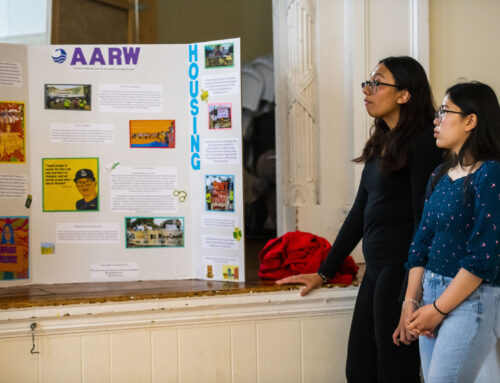
Each year the leaders of Canada, France, Germany, Italy, Japan, the United Kingdom, and the United States meet to discuss the macroeconomics of their respective countries. This is the Group of Seven, more commonly known as G7, which formed in 1975 as a response to the Nixon Shock, the energy crisis of the 70s, and the onset of a global recession.
This year’s summit was much anticipated since the COVID-19 pandemic ultimately canceled the one planned for 2020. From June 11 to 13, world leaders Justin Trudeau, Emmanuel Macron, Angela Merkel, Mario Draghi, Yoshihide Suga, Boris Johnson, and Joe Biden held court in Cornwall for the three-day summit.
While the G7 is the much more well-known and anticipated summit, just a few months before in April, feminists, experts and activists met for the W7 Summit—an off-shoot of the G7 Summit which aims to amplify voices that may not be heard during the main event.
Powered by the Gender and Development Network, a group of NGOs based in the UK, the W7 Summit worked to establish core values and proposals to bring to the W7 Summit in hopes that leaders “adopt concrete political and financial commitments that lead to a tangible, lasting and transformative impact on women and girls’ lives everywhere in 2021 and beyond.” These values included taking a stand against gender-based violence, and promoting women’s economic justice, a right to education, and sexual and reproductive health and rights. At the culmination of the W7 summit, its leaders hoped that the G7 would make real commitments and pledge “tangible results and funding across every aspect of G7 discussions.”
Existing gender inequalities were only amplified in the past year. More women than men work in healthcare—an industry that is the backbone of the COVID-19 crisis—yet its gender pay gap has only widened in the last year, from 25.2% to 28%. Women are also disproportionately represented in low-wage jobs, many of which were considered “essential” during the pandemic’s harshest lockdowns, as they are more likely to face discrimination in the workplace and excluded from higher-paying jobs. As the main goal for the G7 Summit, economic build-back is going to be extremely important for women across the globe.
“Traditional approaches of financial inclusion for women have proven insufficient, particularly for the most marginalised, amounting only to small changes seeking to incorporate women into an unequal system that continues to deny them access to vital public services,” the W7 Communique reports.

Unkept promises made at past summits are the reason why women’s economic justice continues to be number one on the list of W7 demands.
W7 leaders suggest that the G7 “ensure equitable economic recovery internationally” by canceling all government debt “across private, bilateral and multilateral creditors” and promoting global inclusive economic decision-making. They also hope that the G7 recognizes, protects, and invests in the care economy, which was overstretched during the pandemic. Doing so is possible with the creation of quality jobs and investing in the fair-trade economy.
Further down on the list is education, a topic which made headlines during the summit when UK Prime Minister Boris Johnson said that £430 million would be put towards funding girls’ education in ninety developing nations. But, in April his government made a £200 million cut from the cause. In 2018, leaders promised to spend over $2 billion on girls’ education around the globe in the coming years, yet that promise has yet to be realized.
Internationally, education systems were uprooted and rebuilt by the spread of the virus, and graduating from college and high school from the comfort of one’s bedroom became less strange than it sounded before COVID-19 spread.
In developing countries around the globe, many schools shut their doors forever because of the pandemic, leading to a number of life-changing events for young women: “early and forced marriage, unintended pregnancy and consequently extreme poverty” are just a few reported by the W7 Summit. Even if schools in developing countries reopen in the future, an entire generation of girls will not be able to re-enroll because they are now wives and mothers.
Specifically concerning girls’ education, the W7 recommended that the G7 “provide full financial support to education,” “eliminate structural gender barriers that prevent girls from accessing and completing education,” “create and sustain inclusive and gender-transformative education systems” and “commit to the meaningful participation of girl-led groups and girl activists in key global decision-making processes on all aspects of their lives, including education.”
Female and other marginalized workers and students were greatly impacted by the COVID-19 pandemic. Whether it was the loss of a job, taking on the load of family and child care, or having to give up on their dream of education, there are many hurdles in which leading governments around the world can assure that women successfully jump over.
For far too long we’ve been reacting to outrageous societal norms by rolling our eyes and saying, “It’s 2018, it’s 2019, it’s 2020!” It’s 2021 and the gender pay gap in the US is still eighty-two cents to a dollar, and 132 million girls are out of school worldwide. President Biden has already made his way back to the US, and women around the globe can only hope that the concerns of the W7 were taken seriously in Cornwall.
The W7 Communique can be read in full here.



